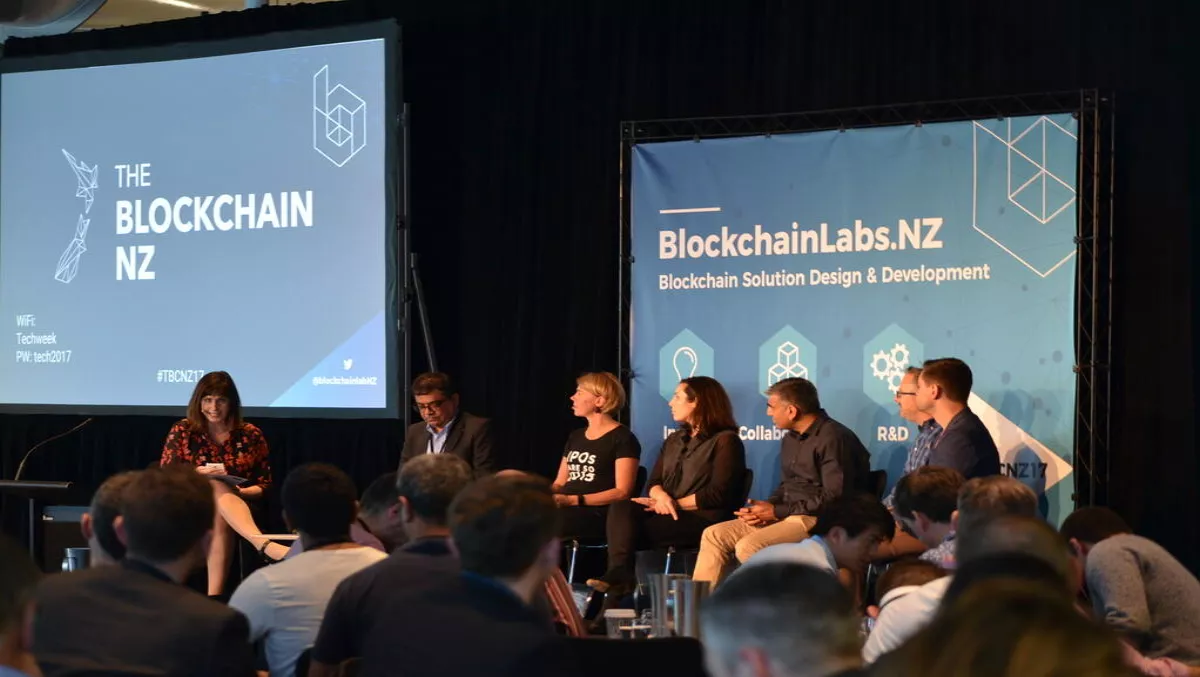
Mind - blown. A blockchain neophyte goes to a conference
For the uninitiated, going to a full conference day of a new, obscure - maybe even arcane - technology that is spoken of in tones of reverence may be daunting.
For the record, I am uninitiated, and it was daunting.
However, it was also fascinating, mind-bending, and gave incredible insights into where the blockchain could make the next major leap in technology, and the pitfalls that could be waiting to swallow us if we were to allow our id to get in the way of progress.
The two-day conference was the third blockchain conference to run in New Zealand, organised by BlockchainLabs.NZ (a collaboration between 3months.com and Brave New Coin) and run as part of New Zealand Techweek.
The speakers covered a variety of topics, ranging from the technical to the less technical real-world use cases of the blockchain, controversial possibilities on the potential waiting to be unleashed, where the technology is and where it needs to be improved, and how it could change existing economic and political structures.
For me, these were the highlights of day two of the Blockchain NZ conference:
Interesting to hear about DAO story from @ChrJentzsch #blockchain #TBCNZ17 pic.twitter.com/DdhiqIDQte
— Mital Kakaiya (@kakaiya) May 8, 2017
The DAO was the largest crowdfunding project in history - all conducted in cryptocurrency.
It failed because someone took advantage of a software bug and made off with $50million of the cryptocurrency raised.
At the centre of it all was Christoph Jentzsch, whose speech was informative but also remarkably frank about where it went wrong, and what others trying to create a decentralised autonomous organisation could learn from his mistakes.
He encouraged others not to be deterred by the heist and to continue to innovate on the blockchain, leaving the audience with this quote to ponder:
'You never know how far you can go until you've gone too far' @ChrJentzsch fave quote; wonderful candour on #DAO @blockchainlabnz #TBCNZ17 pic.twitter.com/e2IVCoffz4
— Emma Weston (@emmamweston) May 8, 2017
Decentralisation as the answer to inequality was the thrust of Maksim Ismaylov's speech, focusing on the travel industry and how the current economy incentivises and favours a small number of companies acting oligopolistically.
He's building a database on the blockchain that will remove the need for large corporations making up the intermediaries, and lower barriers to entry in the travel industry.
For me, it was exciting to see how the blockchain is being used to disrupt traditional bastions of economic advantage and create a more equal society.
#whatwouldfroddodo? We need to destroy the ego that inherently comes with power. #decentralisation #TBCNZ17 pic.twitter.com/LOJmJ5xWWv
— Shadoe Stone (@shadoesuzanna) May 9, 2017
Estonian Kaidi Ruusalep is the founder of Funderbeam, the 'crazy animal that is a startup stock exchange built on the blockchain', as she calls it.
Ruusalep's speech positioned the blockchain as the perfect solution for providing trust in a financial industry where trust is lacking.
Also, personally, it's inspiring to listen to her as a brilliant, innovative woman disrupting the financial sector with technology.
Ruusalep made a strong case for New Zealand regulators to be open-minded about the blockchain and its potential.
@funderbeam- "NZ of 4 most open economies - home of the first true blockchain stock exchange?" #Techweek17 #TBCNZ17 pic.twitter.com/f6G4SJaPTd
— Matt Kennedy-Good (@MattKennedyGood) May 9, 2017
Hurdles for #blockchain based stock exchanges are regulatory. @KaidiRuu from @funderbeam calling #NZ regulators to be open-minded #TBCNZ17 pic.twitter.com/MXeyIv6Xuz
— Laura Reitel (@lrtl) May 9, 2017
Last but not least, Vitalik Buterin was the much-anticipated keynote speaker for the night.
He's the author of the Ethereum whitepaper, a decentralised platform that runs smart contracts.
Cryptoeconomics with the founder of @ethereumproject and our keynote speaker @VitalikButerin. Pleasure having you in #NZ. pic.twitter.com/5zC2eQUJLx
— Blockchain Labs NZ (@blockchainlabnz) May 9, 2017
Buterin spoke about how cryptoeconomics allows people to build a system incentivising the behaviour they want, based on more than just economic incentive.
His speech expanded on what blockchain technology allowed people to do that wasn't possible before, honing into what really set the technology apart from its predecessors.


